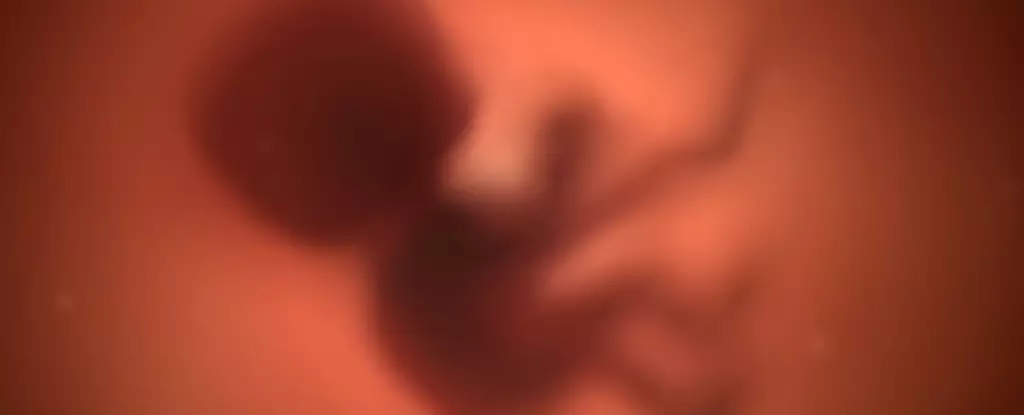Cancer, a daunting illness that has claimed millions of lives globally, is influenced by a complex interplay of genetic, environmental, and lifestyle factors. While the prevalent narrative has focused primarily on mutations that occur later in life, emerging research suggests that the seeds of certain cancers may be sown far earlier, during prenatal development. Recent findings from the Van Andel Institute posit that the conditions encountered by a fetus in the womb might significantly influence cancer risk later on. This groundbreaking insight opens the door to reevaluating our understanding of cancer’s origins and potentially reshaping its treatment and prevention strategies.
At the heart of this new research lies the concept of epigenetics, which examines how external factors can modify gene expression without altering the DNA sequence itself. The study highlights two distinct epigenetic states identified in genetically modified mice, focusing on a specific protein known as TRIM28. This protein functions as an epigenetic regulator that plays a pivotal role in turning genes on and off. The researchers observed that variations in TRIM28’s activity could lead to disparate cancer risks in genetically identical mice, illustrating that even organisms sharing identical genetic material could manifest vastly different health outcomes based on developmental conditions.
This signifies a profound shift in how we traditionally perceive cancer risks, challenging the notion that genetics alone dictate the propensity for developing cancer. The findings underscore the significance of the prenatal environment, suggesting that factors such as maternal health, nutrition, and exposure to toxins may play an essential role in setting the stage for future health challenges, including cancer.
Interestingly, the researchers did not just identify the presence of these two epigenetic states but also noted a correlation between them and the types of cancers that later developed. Cancers arising in a “lower-risk” epigenetic state tended to be predominantly hematological, such as leukemia or lymphoma. Conversely, those that emerged from a “higher-risk” environment were frequently solid tumors, such as prostate or lung cancer. This dichotomy suggests that the impacts of prenatal environments on cancer are nuanced and multifaceted.
It raises questions about what specific factors during development might lead to these different epigenetic outcomes. While some elements may appear random, existing literature has noted that certain external influences, such as maternal substance use during pregnancy, can skew cancer risk profiles. The research invites further exploration into these potentially modifiable factors, highlighting the importance of prenatal care in mitigating long-term health risks for offspring.
Traditionally, discussions surrounding cancer often invoke the notion of “bad luck”—the chance mutations that lead to the disease. However, as noted by researchers like Ilaria Panzeri and J. Andrew Pospisilik, such perspectives may be overly simplistic. They argue that the understanding of cancer risk must extend beyond genetics and chance since the environment in which a person develops plays a foundational role in shaping their health profile.
Cancer is not merely an endpoint resulting from random genetic mutations but a complex disease informed by various factors intertwined with our development. Such a paradigm shift has significant implications for how we approach cancer prevention and intervention strategies. By appreciating that the risk landscape is also influenced by prenatal factors, healthcare systems can better focus on preventative measures that begin even before a child is born.
The implications of this research are profound, suggesting new pathways for diagnosis, prevention, and treatment. As scientists strive to unravel the complexities of cancer etiology, understanding the prenatal contributions to cancer risk opens up avenues for early intervention. The possibility of tailoring preventive strategies based on a child’s prenatal exposure could revolutionize current healthcare practices.
As our understanding of cancer continues to evolve, it becomes clear that our health journeys begin not at birth but in the womb. This newfound insight challenges us to reconsider how we view and address cancer risk, advocating for holistic approaches that prioritize maternal and fetal health in the long-run fight against this pervasive disease.

